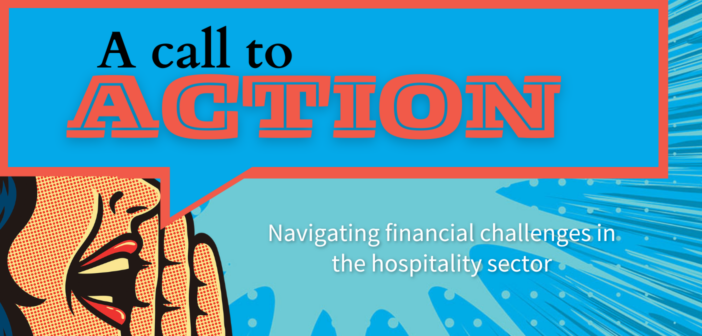Navigating financial challenges in the hospitality sector
In recent years, the hospitality industry has faced unparalleled changes, so it’s imperative that hotel operators find a partner who can expertly advocate for their needs and aid them in navigating the complex financing landscape.
As of late, there are several critical issues affecting hotel owners that may require extraordinary action, including legislative and regulatory changes. Here are seven of the most significant pain points in the current economic climate:
1. RISING FINANCING COSTS
Loans are simply more expensive now, due to the high interest rates. Adding insult to injury is that the adjustable rate Small Business Administration (SBA) 7a loans, once affordable, are now quite expensive – often prohibitively so.
2. LOAN CONCENTRATION CONCERNS
Banks, especially smaller institutions, have set restrictions on the number of hotel loans they provide. These limits sometimes are set by regulators and sometimes by the leadership of the banks and lending institutions. These limits are particularly acute for smaller banks and community lenders. The result is there are fewer lenders for hoteliers and fewer loans from each lender. GRP Capital President Rick Patel notes, “We have clients who have loans that are maturing. Even though they have a long-standing relationship with their lender, they’re still scrambling for funding because their capital providers have concentration issues. Borrowers may look to change relationships but projects that have cash flowed for years under low interest, fixed-rate loans may not cash flow in today’s debt market because business owners haven’t needed to increase pricing to keep up with rising cost of debt. This is a new development and is very challenging for everyone.”
3. SBA LOAN LIMITS
A $5 million cap on the SBA program has excluded larger hotels and those with higher per-key value from securing bank and non-bank SBA guaranteed financing. Moreover, this cumulative limit hinders business owners with ownership in multiple properties. This cap should be raised to at least $10 million to open up this necessary loan vehicle to a greater number of AAHOA Members. This is an issue upon which AAHOA has advocated extensively.
4. IMMINENT LOAN MATURITY CRISIS
Many loans are coming due right now. This is a normal cyclical occurrence. What isn’t normal is borrowers are facing much more expensive financing costs than in the past with fewer options available. To make matters more dire, the SBA adjustable interest rate has made loans cost prohibitive for some during this high-interest-rate period. Borrowers are looking at bridge loans or interim financing options, but these products aren’t as often loan-to-value constrained but debt service constrained.
5. POST-COVID LENDER RELUCTANCE
Many lenders still haven’t bounced back from COVID-19 shutdowns. Even though a number of hospitality markets are hitting pre-COVID sales, lenders are having a hard time looking past the credit risks they may have been forced to face during the pandemic. Even with an abundance of supporting evidence that goes beyond typical bank requirements, lenders are hesitant or restricted. Lenders seem to be focused on mitigating risk for the future, which some will agree is a fiduciary duty, but it comes at the cost of holding back business owners today.
6. INFLATIONARY PRESSURES, PARTICULARLY ON INSURANCE
Every business grapples with higher prices for goods and services and hotels are no exception. Certainly, attracting and maintaining a full complement of staff is one of outgrowths of mild inflation combined with close-to-full employment. But, the skyrocketing insurance costs are particularly brutal in the hotel sector. Rick Patel notes, “We have clients whose insurance costs are astronomically higher than they were when they first purchased their policies. It’s particularly difficult to obtain and afford insurance in coastal regions and in states where insurance companies have simply quit doing business.” These same owners also are reporting these exorbitant policies don’t even cover wind damage, thereby limiting the effectiveness and the value of the required insurance policy.
7. CHALLENGES FOR ECONOMY CHAINS
Many conventional lenders absolutely exclude exterior corridor properties without exception, but these properties often are profitably and efficiently run. Lenders should understand there’s demand for these properties. Many guests who are tradesmen and other workers appreciate exterior corridors, so they can keep eyes on their vehicles throughout their stays. As it stands, owners of economy-class properties, particularly those with exterior corridors, only have the options of SBA guaranteed loans, which are expensive loan vehicles right now. The upshot: Some of the leanest-run businesses are being forced into higher interest arrangements. GRP Capital Loan Processor Keren Alpert notes, “These clients are our bread and butter. I feel like they’re part of our family. It’s in everybody’s best interest to support these entrepreneurs.”
PARTNERSHIP POWER
AAHOA leadership will have to advocate on behalf of members to obtain some relief for them, and the GRP Capital staff is working closely with the AAHOA team to keep them informed of the issues regarding loans and financing as it relates to AAHOA Members.
Together, we hope relief will be forthcoming in the forms of increased loan availability, guarantees to make short-term relief available, as well as new programs to aid in securing more comprehensive property insurance. It may be necessary to place a ceiling on SBA loans with adjustable interest rates so borrowers can plan for changing costs of borrowing without being priced out of loans entirely. In addition, with appropriate SBA guarantees, lenders can offer short-term relief to struggling borrowers by allowing for periods of interest only payments or reduced payments altogether.
In general, we all need to pursue the policy of making more financing available for a greater variety of borrowers.



 Rick Patel
Rick Patel

